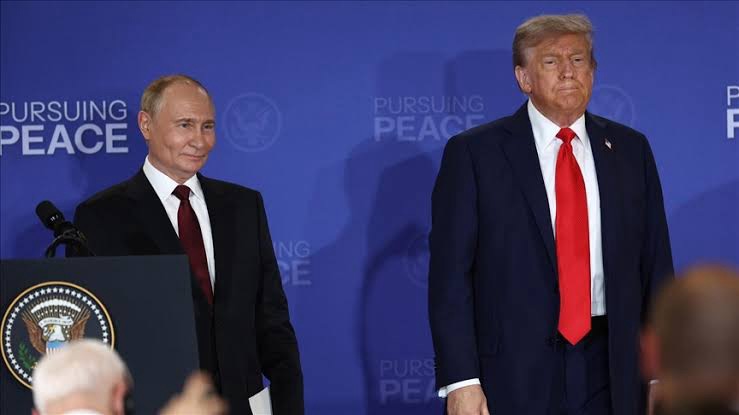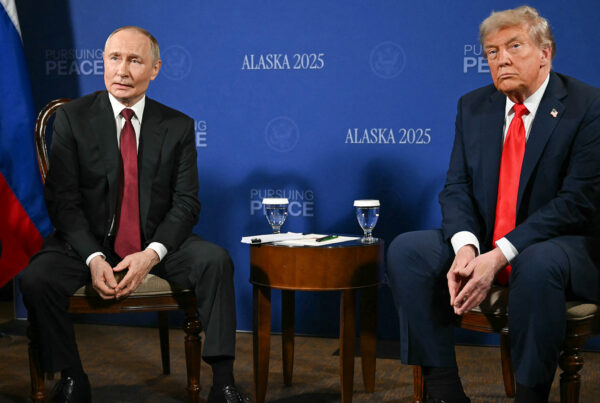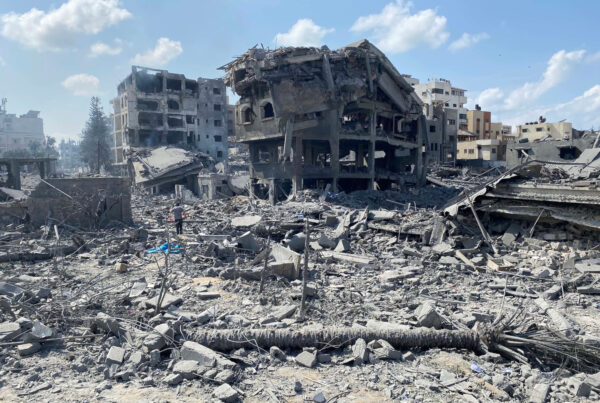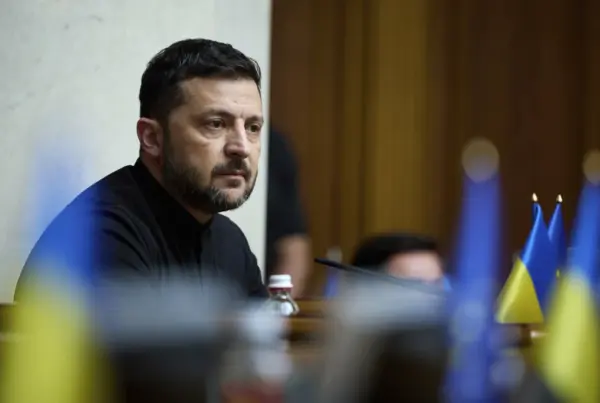The White House meeting between Ukrainian President Volodymyr Zelenskyy, US President Donald Trump, and European leaders marked a new phase of international diplomacy. Yet the gathering was immediately overshadowed by UK Prime Minister Keir Starmer’s sharp warning that Russian President Vladimir Putin cannot be trusted and is not serious about achieving peace.
Starmer’s statement was not without basis. He pointed to Russia’s continued military aggression, including a drone strike in Kharkiv that killed six civilians, as proof that Putin’s commitment to peace remains rhetorical at best. According to Starmer, there is no reason to believe the Kremlin’s leader has any genuine intent to end a war that has claimed tens of thousands of lives since 2022.
Zelenskyy, Trump, and European Leaders Meet
The Washington summit brought together key figures including French President Emmanuel Macron, German Chancellor Friedrich Merz, and top EU officials. The main objective was to find common ground on how to end the war.
However, the talks quickly shifted in tone after reports suggested Trump leaned toward supporting Russia’s proposal that Ukraine give up some territory as a condition for peace. Zelenskyy rejected the idea outright, stressing that Ukraine would not surrender its land, since every inch is part of the nation’s sovereignty.
European leaders rallied behind Zelenskyy’s stance. Macron and Merz emphasized that peace must not come at the cost of territorial sacrifice. Their united front highlighted a growing divide between the United States and Europe on how to handle the crisis.
Starmer’s Strong Words Against Putin
Keir Starmer was the most uncompromising voice in the room. He argued that Putin has repeatedly shown over the years that he cannot be trusted. Each time a ceasefire opportunity arises, Russia either delays or manipulates the process for its own military advantage.
“Putin is not serious about peace. The world cannot allow him to play the same games again and again,” Starmer declared, echoing the sentiment of many European allies.
Starmer also recalled the proposed 30-day ceasefire that international mediators tried to push forward, which Russia either rejected or stalled. He said this behavior clearly showed Putin’s intent was only to buy time, not to genuinely stop the war.
Europe’s Security Coalition
As a concrete step, Starmer introduced the idea of a coalition of the willing a European alliance prepared to deploy troops or provide direct military support once a ceasefire is reached. The coalition would serve as a tangible security guarantee, rather than relying solely on diplomatic trust.
This move signaled Europe’s determination to move beyond words. With such a coalition in place, any peace agreement would stand on firmer ground, backed by military readiness and shared commitment. It echoed Zelenskyy’s longstanding demand that peace must be accompanied by real security assurances from Western nations.
Global Impact and Humanitarian Crises
While diplomacy played out in Washington, the war’s consequences continued to ripple worldwide. Energy prices soared, food supply chains faltered, and humanitarian suffering deepened. Meanwhile, devastating flash floods in Pakistan killed more than 350 people, underscoring that the world faces multiple crises simultaneously—from armed conflicts to climate disasters.
At the same time, Amnesty International released a damning report accusing Israel of deliberately starving Palestinians in Gaza as part of its war policy. The revelation highlighted that global geopolitics is not defined by one conflict alone but by overlapping crises with profound human cost.
The Future of Ukraine–Russia Diplomacy
The Washington talks could prove decisive for the next stage of diplomacy. Although Trump pressed for a territorial compromise, most European leaders firmly backed Zelenskyy. Starmer reiterated that true peace must never be built on betraying a nation’s sovereignty.
He concluded by stressing the importance of binding guarantees to ensure the war genuinely ends. Without concrete steps, he warned, negotiations would remain nothing more than a stage for empty rhetoric.
Temukan lebih banyak dari Berita Olam
Berlangganan untuk mendapatkan kiriman posting terbaru ke email Anda.




